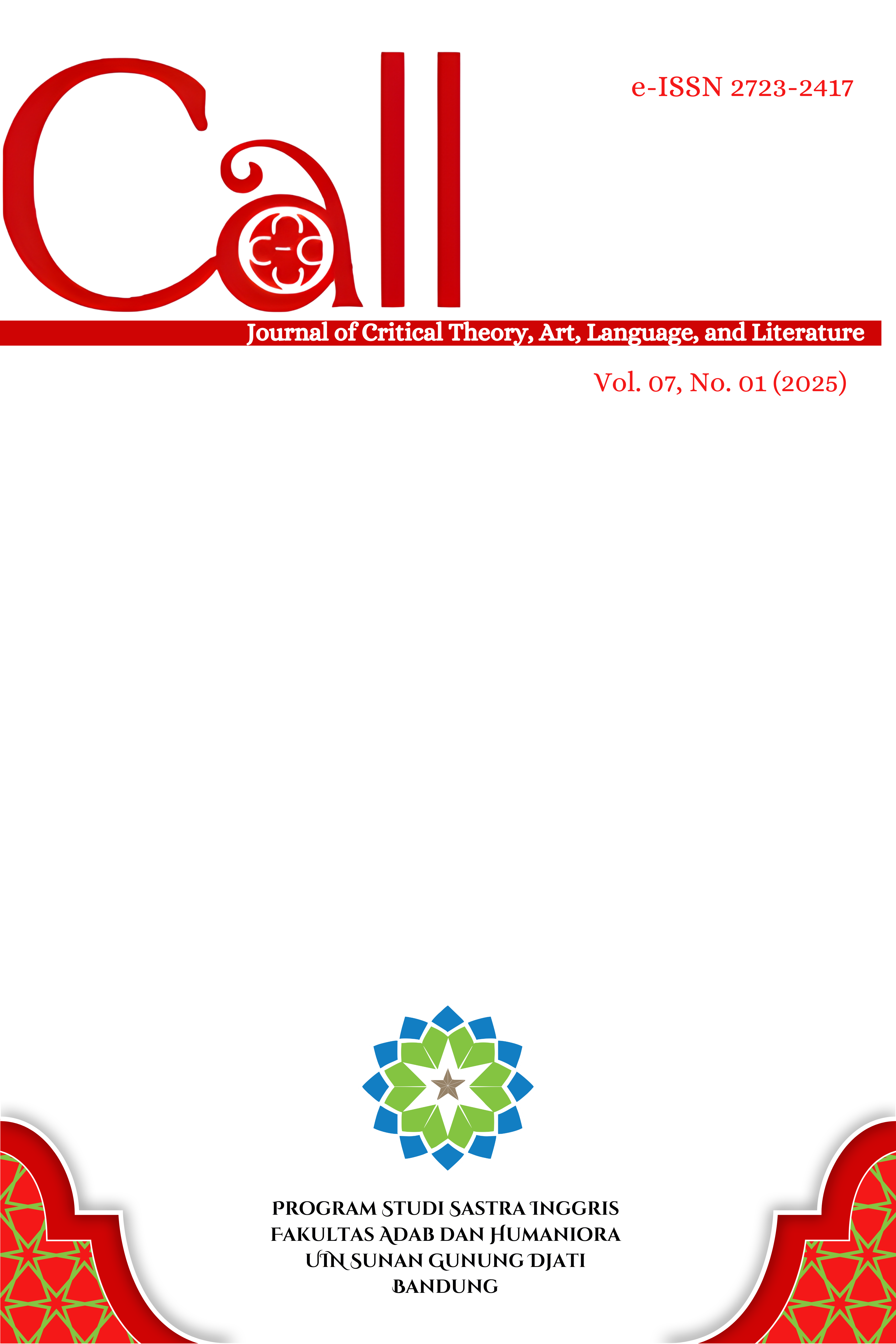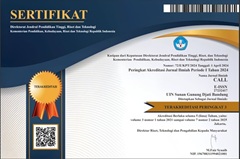LANGUAGE MARGINALIZATION AND (POSSIBLE) LANGUAGE RACIALIZATION IN THE INDONESIAN HIGHER-EDUCATION ENGLISH PEDAGOGY
DOI:
https://doi.org/10.15575/call.v7i1.44976Keywords:
Language marginalization, Language racism, TESOL, English teaching and pedagogy, Indonesia higher educationAbstract
This study describes the subtle practice of language marginalization in the Indonesian higher-education English pedagogy. Employing an autoethnographic method to scrutinize my personal narratives concerning assumptions, biases, and internalized ideologies, I formulated two research questions to guide the inquiry: (1) How does language marginalization take form in the teacher-student interactions and teachers’ perception toward students in the context of Indonesian higher-education English pedagogy? (2) How do these practices of language marginalization relate to language racism in the context of Indonesian higher-education English pedagogy? Through this study, I argue that language marginalization could occur tacitly in any English higher-education subject where students had to showcase their English production, such as speaking and writing courses. This is when their English productions are complained and appropriated due to the internalized monolingual ideology. Language marginalization could also ensue in any classes whether or not teachers demand students to demonstrate their English productive skills. In this case, the phenomenon is bolstered by the teachers’ attitudes and assumptions on students based on students’ physical phenotypes and language production. I also demonstrate how language marginalization relates to language racism in Indonesia’s higher-education settings, in a way that both occur simultaneously and the former fuels the latter. Finally, I suggest some recommendations for Indonesian English teacher for more productive, just pedagogical practices.
References
Adams, T. E., Jones, S. H., & Ellis, C. (2015). Autoethnography. Oxford University Press.
Alim, H. S., & Smitherman, G. (2012). Articulate while black: Barack Obama, language, and race in the us. Oxford University Press.
Baker-Bell, A. (2020). Linguistic justice: Black language, literacy, identity, and pedagogy. Routledge.
Berlin, J. A., & Inkster, R. P. (1980). Current-traditional rhetoric: Paradigm and practice. Freshman English News, 8(3), 1-14.
Canagarajah, A. S. (2013). Translingual practice: Global Englishes and cosmopolitan relations. Routledge.
Chang, H. (2008). Autoethnography as method. Routledge.
Coleman, H. (2016). The English language as Naga in Indonesia. In P. Bunce, R. Phillipson, V. Rapatahana, & R. Tupas (Eds.), Why English? Confronting the Hydra. Multilingual Matters.
Creswell, J. W., & Creswell, J. D. (2018). Research design: Qualitative, quantitative, and mixed methods approaches. SAGE Publications.
Creswell, J. W., & Poth, C. N. (2018). Qualitative inquiry & research design: Choosing among five approaches (4th ed.). SAGE Publication.
Crowley, S. (2010). The methodical memory: Invention in current-traditional rhetoric. Southern Illinois University Press.
Ellis, C., & Bochner, A. (2000). Autoethnography, personal narrative, reflexivity: Researcher as subject. In N. K. Denzin & Y. S. Lincoln (Eds.), Handbook of qualitative research (2nd ed., pp. 733-768).
Endo, H., & Reece-Miller, P. C. (2010). Monolingual ideology in the US: History, hegemony, and linguistic privilege. Counterpoints, 355, 83-98.
Farrell, T. (2008). Critical incidents in ELT initial teacher training. ELT Journal, 62, 3-10. https://doi.org/10.1093/elt/ccm072
Fitria, T. N. (2023). English accent variations of American English (AME) and British English (BRE): An implication in English language teaching. Sketch Journal: Journal of English Teaching, Literature and Linguistics, 3(1), 1-16.
Flores, N., & Rosa, J. (2015). Undoing appropriateness: Raciolinguistic ideologies and language diversity in education. Harvard Educational Review, 85, 149-171. https://doi.org/10.17763/0017-8055.85.2.149
Flores, N. L. (2019). Translanguaging into raciolinguistic ideologies: A personal reflection on the legacy of Ofelia Garcìa. Journal of Multilingual Education Research, 9, 43-60.
Freire, P. (1970). Pedagogy of the opressed. Herder and Herder.
García, O. (2019). Bilingual education in the 21s century: A global perspective. Willey-Blackwell.
Downloads
Published
Issue
Section
Citation Check
License
Copyright (c) 2025 Arry Purnama

This work is licensed under a Creative Commons Attribution-ShareAlike 4.0 International License.
Authors who publish in CALL agree to the following terms:
- Authors retain copyright and grant the journal right of first publication with the work simultaneously licensed under Attribution-ShareAlike 4.0 International (CC BY-SA 4.0) License that allows others to share the work with an acknowledgment of the work's authorship and initial publication in this journal.
- Authors are able to enter into separate, additional contractual arrangements for the non-exclusive distribution of the journal's published version of the work (e.g., post it to an institutional repository or publish it in a book), with an acknowledgment of its initial publication in this journal.
- Authors are permitted and encouraged to post their work online (e.g., in institutional repositories or on their website) prior to and during the submission process, as it can lead to productive exchanges, as well as earlier and greater citation of published work (See The Effect of Open Access).




